2020
- Marxism isn’t an enemy to Christianity - any more than Capitalism is an enemy to Christianity- which is to say
- Both economic systems have a logic and telos contrary to parts of our Chrisitan story and yet
- I know Socialist Christians. And Capitalist ones.
- All that to say: here’s some things that aren’t socialist but seem like they are to USA Christians:
- Collectivism: Every single culture represented in the Bible was collectivistic; we misread and misapply to our own peril when we individualize Scriptures. Biblical collectivistic assumptions aren’t Marxist, they’re Christian. Christians are told to live with a collectivist ethic in Scripture.
- Critiques of meritocracy: It strikes us as unfair and criminal that people would get what they don’t deserve and yet the politic and economy of the Kingdom of God is scandalously un-meritocratic. To critique and dismantle meritocracy isn’t Marxist, it’s Christian.
- Taking corporate responsibility for history/societal ills: The atonement loses all meaning, the stories of judgment and deliverance make no sense, Paul’s logic of jew/gentile unravels unless one holds to the notion of corporate responsibility. To be complicit and culpable in systems/structures of evil and have a responsibility to reckon with that isn’t Marxist. It’s Christian.
- Suggest that wealth redistribution to the poor is morally superior to wealth redistribution to the rich: USA has billions of dollars in govt handouts to the wealthy, corporations, and rural middle class. Wealth redistribution is a central part of our economy. To advocate for wealth redistribution to the poor isn’t Marxist, it’s commanded over and over in Scripture (OT and NT, both individuals and governments). Wealth redistribution isn’t Marxist, it’s Christian. Wealth redistribution to the wealthy is Capitalist, not Christian.
- All these things seem Socialist (or Marxist) to USA Christians because we are good disciples of Capitalism.
- The reason Socialism seems like such a threat to us and elicits such fear in us is not because it’s incompatible with Christianity; it’s because it threatens our allegiance to Capitalism.
- I am no expert in economic theory; But I see the above dynamics playing out in articles, conversations, and books I’m reading and this is how I’m beginning to work it all out.
- The degree to which those statements are binding have to do with how in-concert they are with higher levels of authority (the Fathers and Scriptures). I refuse any doctrinal or ethical proposition that is in outright contradiction of the catholic consensus if that consensus can be reasonably argued from the Scriptures—as would the authors of the Articles themselves.
- It is probable that the original authors did in fact mean to prohibit certain practices and doctrines that are arguably consistent with the Bible and witness of the Early Church, and thus catholic. Example: reservation of the Sacrament. However we are not bound so much by exactly how the orginal authors intended to apply the true catholic doctrines in the daily discipline of the church (although it’s important to keep in the conversation regarding interpretation and use of the Articles).
- Our Communion’s collective witness is that they are still useful, because they put in no uncertain terms the Bible in its rightful place of primacy and address issues that still plague the church today (for instance, Pelagianism and anti-Trinitarian heresy). Even interpreting them in the widest possible sense, the essential, catholic doctrines (including justification by faith) are preserved. Furthermore, keeping them as a standard helps us to remember our origins and the precious doctrinal, liturgical, and cultural heritiage we receive as heirs of the English Reformation.
2020 brought much about the Church in America into the light.
Turns out, we’re even worse off than we perhaps thought in terms of our continued tolerance and even embrace of various “isms” at odds with Christianity: racism, sexism, classism, nationalism, consumerism, and anti-intellectualism stand out to me.
As I see it, the above mentioned ideologies are far worse and more immediate compromises of the Church’s faithfulness than the mostly vaguely defined “cultural Marxism” and “Critical Race Theory.” (Nevertheless these are certainly not exempt from robust evaluation in light of the Gospel.)
That said, now that these things are out in the open, the discussion has deepened.
This can be the beginning of justice and change and healing.
Yes, it is hard, painful. Discouraging, even humiliating sometimes.
But we can say with confidence that the Spirit of Truth is at work in his people.
As we open ourselves to his leading, we will leave our previously held commitments to self-advancement and self-preservation behind.
As we keep our eyes focused on the Jesus presented to us by the Gospel of witness of the Church throughout the centuries, his image will become more clear in us and through us.
As we persevere through the discomfort of revelation and transformation, we’ll find comfort and strength and satisfaction in the promise of a prize much greater than the power that’s so intoxicatingly difficult to let go of in the present.
As our desire for union with God in Christ is renewed, all things contrary to him will fall away, because the fulfilment of this desire is the promise guaranteed by the Resurrection.
The gates of the “isms” will not prevail against the Church of God.
Photo by Kelly Sikkema on Unsplash

A meditation for Christmas Eve
There are few images as precious to me as Christ on the cross, the Creator King of the universe hanging, naked from two rough pieces of wood, crushed like a common criminal…
…Christ on the cross, defeating death by allowing himself to die while forgiving and loving even people like me that would do such a thing.
The mercy and grace and indeed justice for all people in that image defies comprehension. But there is another image equally precious to me.
It manifests when I realize in order for Christ to offer his perfect humanity on my behalf on the Cross, he had to live as a human.
He had to be born as a human.
So, the picture of baby Jesus, cradled in his mother’s arms, is indeed precious, its humility no less scandalous in our contemporary world—and perhaps more so—than the cross itself.
At the cross we are ever reminded that God would not, could not, does not die for something he does not love.
As we turn our attention this night to the baby in Mary’s arms we are rightly overwhelmed at the accompanying thought that God would not, could not, and does not live as something he does not love.
There, in a naked, nursing baby, we glimpse something of the deepest goodness of God.
This Christmas is so different, and even perhaps disappointing, when held up to what we wanted.
The first Christmas was no doubt the same.
No one wants to deliver a baby in the midst of foreign occupation, while obeying an inconvenient executive order, in the cold, among manure and far away from family.
Nevertheless the light of that night has never been extinguished, and it gives light to the world still, and the darkness of the pandemic, of isolation, of unmet expectations, and unspoken hurts, and years of selfish and self destructive mistakes cannot overcome it. The light of Christmas is God becoming one of us because he loves all of us.
The light of Christmas is the fullness of God entering the human family, and in so doing welcoming the fullness of humanity into the divine family.
The light of Christmas is God taking on, not human illusions of progress, power, and prestige, but the real substance of humanity itself, womb to tomb, in all its frailty and vulnerability and smallness.
The light of Christmas is Jesus Christ, God from God, living unrelenting love for every human, by becoming a human destined to die, so that his divine love would swallow death forever!
He was raised, vindicated and Resurrected, by the Spirit of love. He now gives us that same Spirit, his Spirit, God from God come again to dwell in and among his people now!
The light of Christmas is nothing less than true fellowship with God. This is something we can know and live and receive in and through and because of Jesus Christ and no one else!
This Light and Love that has come to us in, through, and by Christ, transfigures us finally into the very image of Christ, and imparts to us immortality and eternity.
It is the only gift we truly need.
And the good news is that it is ours!
Christ has come.
Christ is here.
Christ will come again!
Amen.
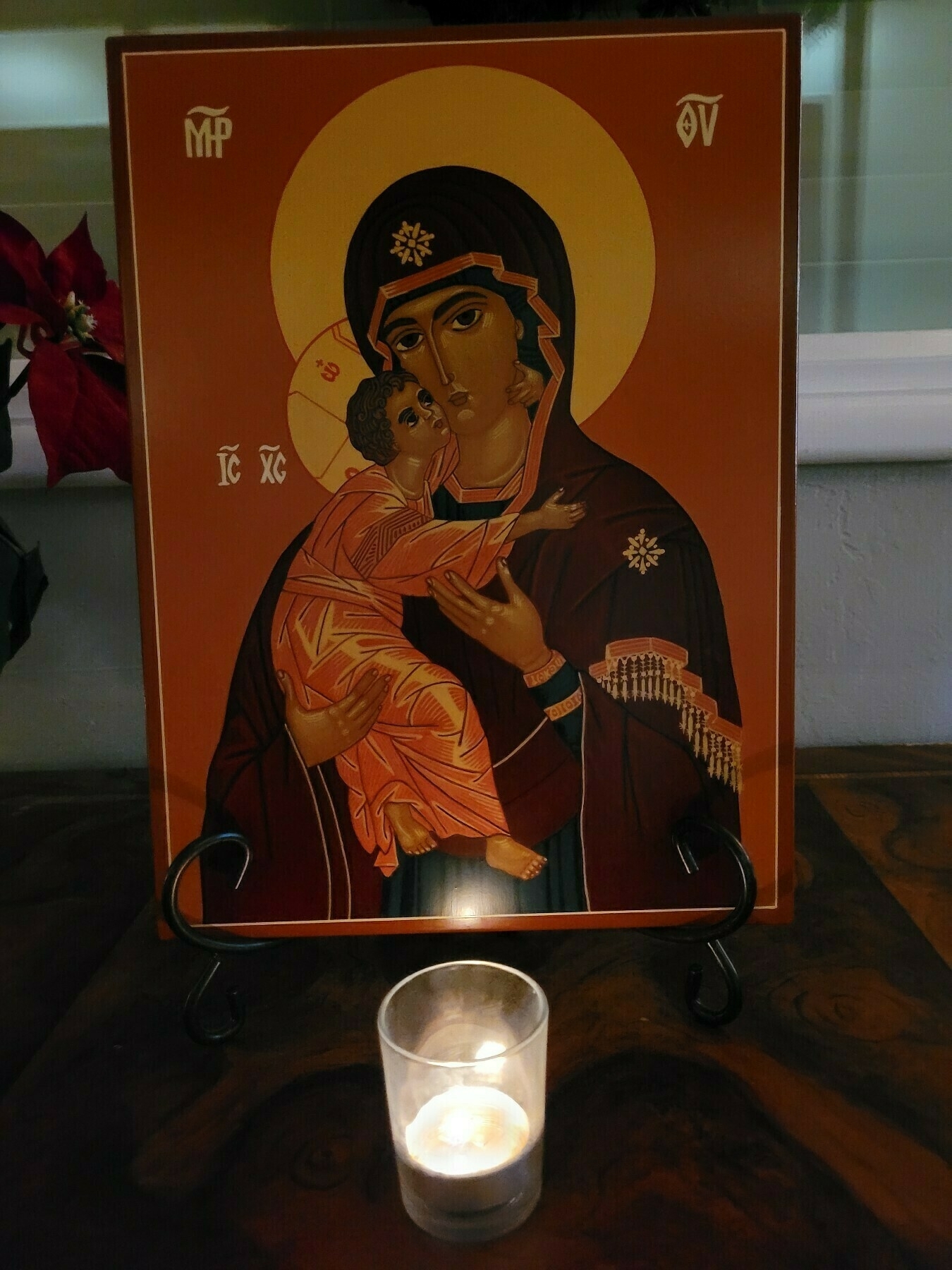
A Culture of Unhealthy Silence
I reject the notion that the solution to any communal tension is to pretend it doesn’t exist by not talking about it.
As a pastor I have been explicitly discouraged on occasion from speaking about certain topics in the church because the topic itself–not simply the way or time in which in which it was approached–was considered inherently divisive.
Yet topics in themselves do not have the power to divide. Only our reactions and responses to them do.
And by not speaking about difficult topics openly and keeping each other accountable to loving, respectful dialog, we rob ourselves of the opportunity to actually resolve tensions in a healthy way.
We have already surrendered to the demonic spirit of division.
By fostering a culture of unhealthy silence, we sponsor a culture of suspicion that necessarily leads to fear, relational rejection, and pain.
Worst of all, we are behaving as if our mutual faith in Christ and love for Christ in one another is not truly enough to be the ground and glue of our relationships.
Either we can trust Christ and his Spirit with our whole selves and community (including disagreements and tensions) or we can’t.
I believe Christ is trustworthy.
This Advent, those of us that claim the Name of Christ have an opportunity to–like John the Baptizer—point beyond ourselves, and cry out with joy and urgency the true story of God come to us in Jesus…
…The true account of God come to us in the flesh, his miraculous birth, his perfect life, his sacrificial death, his vindicating Resurrection, and his Kingly ascension…
…The true gift of God come to us now in the indwelling of the Holy Spirit in and among us…
…The true testimony of God come to us in the preaching of word, in the sacraments, and in the fellowship of the saints….
…The true and only lasting hope of Christ coming again to finally renew all things.
“Holy ordinances are Christ’s, though administered by weak men.”
~ Matthew Henry
Hallelujah!
Dan Scott, writing at Facebook:
In the last few months, all sorts of prophets told us how the election would turn out, who was on God’s side and who was not, and so forth. These abusive claims were simply ways controlling others. They differed considerably from carefully constructed arguments from some man or woman of God saying something like, “after looking at this situation, or this ideology, or this person carefully in the light of our faith, I have come to the following conclusions and offer them for your consideration …”
Saying “thus saith the Lord concerning how God intends for you to vote” is abusive, deceitful, and ungodly. Such tomfoolery should be dismissed out of hand.
God has called his people to develop wisdom and discernment, He does not call his people to surrender their lives to some seer that stands beyond all accountability and common sense.
Amen and Amen.
So grateful for Fr. Kenneth Tanner’s way of articulating a key implication of the Gospel here. This has helped clarify my thinking, soften my heart, and strengthen my faith.
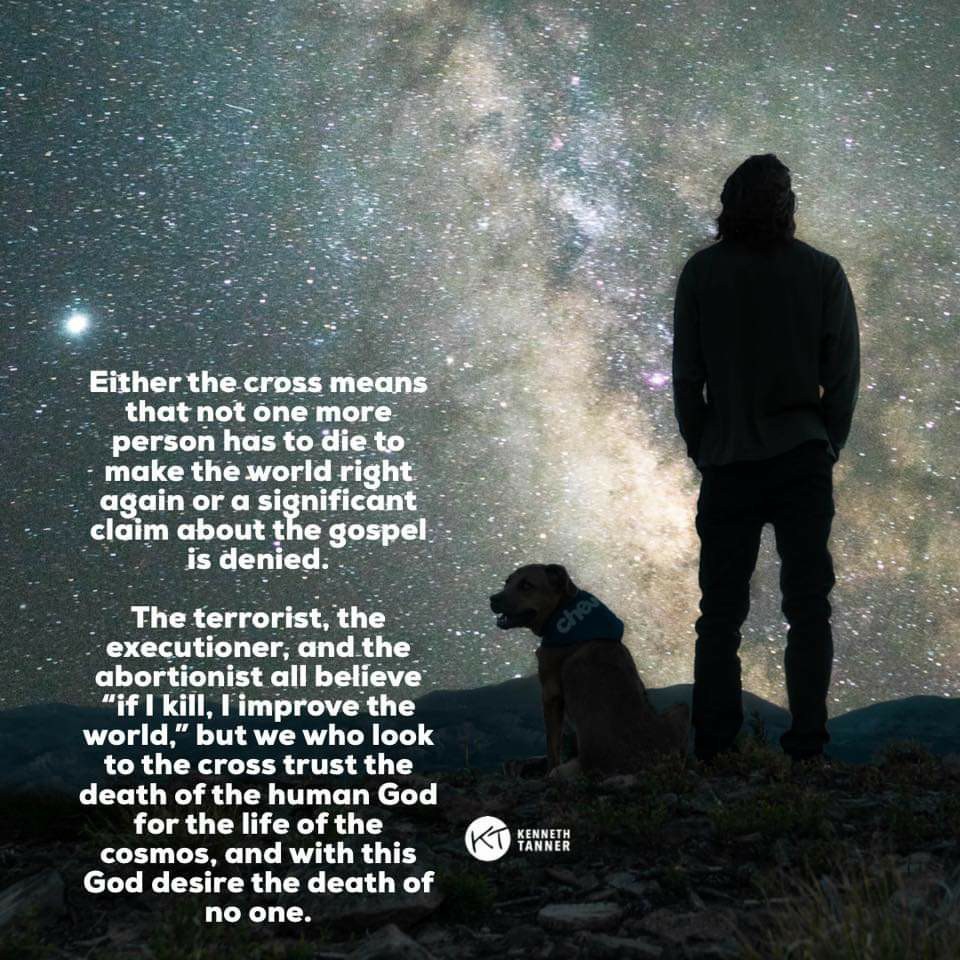
Faithful companions
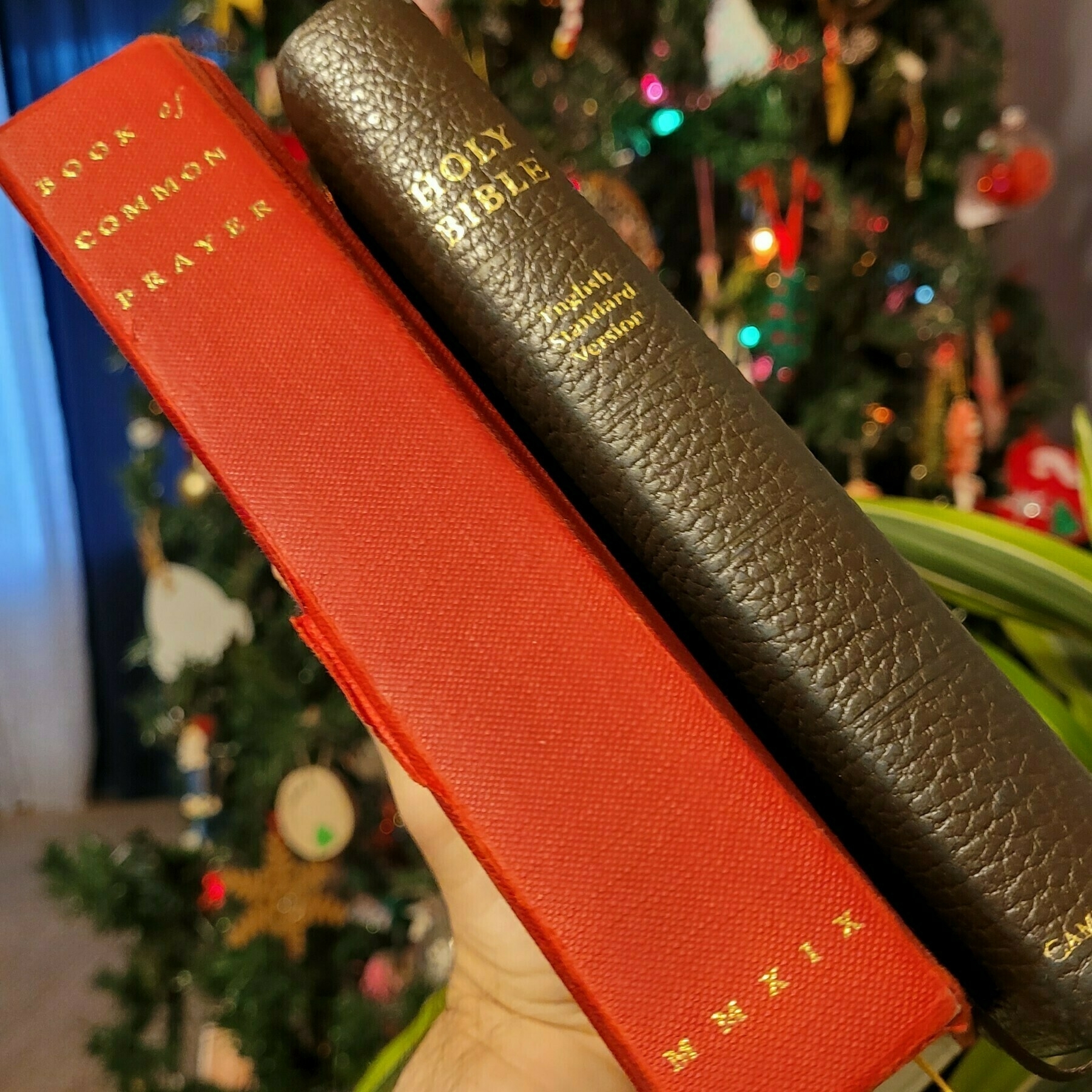
The reading chair

108 COVID-19 deaths reported in AZ today. I believe this is a record high, the previous being 103 on July 17.
Lord, have mercy. Christ, have mercy. Lord, have mercy.
Almighty God, Father of mercies and giver of comfort: Deal graciously, we pray, with all who mourn; that, casting all their care on you, they may know the consolation of your love; through Jesus Christ our Lord. Amen.
Data source: www.azdhs.gov/preparedn…
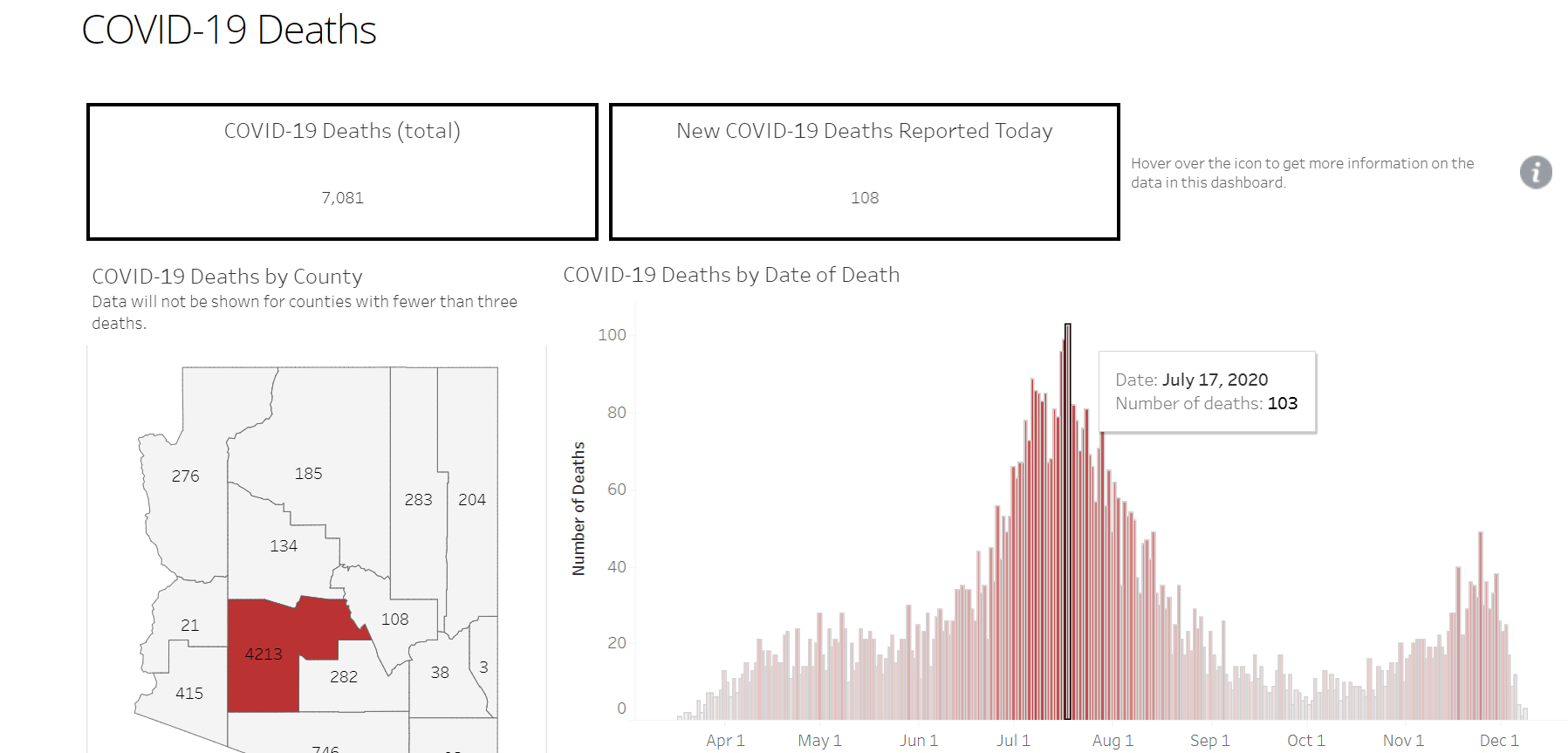
With Pastor Matt, I affirm I’m not an economist. I’m a priest. That said, it is part of my vocation to bring the witness of Scripture to bear in regards to what a healthy society looks like and the place of material wealth in that society.
So, I have been doing my best to carefully consider the biblical witness in relationship to a lot of emotionally-charged rhetoric around so-called “socialistic” and “Marxist” public policies–things like universal healthcare, more funding for public education at all levels, more taxes on the rich, and so on.
I have been thinking about these things because they have been presented to me often as de-facto morally reprehensible because of an alleged connection to the economic/social philosophies listed above. However I’ve not seen a similar skepticism of the American version of “Capitalism” and its associated policies. So often, this has been presented as the “obviously Christian” option–mostly because it emphasizes a kind of non-coerciveness, I think, in the minimalist approach to regulation. There’s certainly something to that.
Nevertheless, the post below is a great reminder that no economic/social/governing philosophy is wholly biblical, and careful discernment along with a counter-cultural, faithful witness is needed no matter what system we find ourselves in.
Matt Tebbe, writing at Facebook:
Some thoughts on ‘Marxism/Socialism’, Capitalism, and USA Christianity:
Dennae Pierre, writing at Facebook:
“A lot of pastors chose trying to defend the chruch from some kind of “false social justice teaching” (that isn’t even being embraced by Christians in their church) at cost of learning how to reconcile and be in unity with Black Christians. Had they chosen the later, they could have become the kind of disciples who could rightly divide the word of truth AND strengthen their witness to the gospel. But because they chose the former they’ve only stepped away from tables and caused harm to the very people their church has been segregated from for generations.”
I appreciate this so much. Is there a kind of teaching out there in some churches that elevates social programs and human problem solving over deeper spiritual truths and the need for ultimate redemption by no one but God in Christ? Yes, of course.
Nevertheless the defensive and accusatory posture in regards to any mention of justice (including “racial justice”), as if this is not a core theme throughout the Scriptures, that I have personally encountered by many “evangelicals” (that purportedly take a high view of the Bible), has been baffling and heartbreaking. A “gospel” that neglects or denies real implications for justice–first in the church and second in the wider society–as a necessary outworking of the Christ’s redemptive work is less than biblical.
“He has cast down the mighty from their thrones, * and has lifted up the lowly. He has filled the hungry with good things, * and the rich he has sent away empty.”
–the Magnificat (Mary’s song)
I am grateful for the teaching of the Church, so clearly articulated at the time of the Reformation, that we have a true encounter with God in corporate worship…and we are confident in this not because we get the ritual or the music or the sermon just right, but because God has promised to meet us as an act of grace and mercy and faithfulness.
It is an honor and privilege and joy to witness in my own feeble way to the only True King, my Lord Jesus.
I am in perpetual awe of how unlike any other ruler he is, how he gives of himself instead of taking from his subjects, how he dispenses mercy to the self-condemned without limit, how he realizes justice for the oppressed, how he heals the sick and binds up the broken–in a word, how he loves!
Praise to you, Lord Christ!
Interpreting the Thirty- Nine Articles
Religion with Room to Grow
Owen Chadwick in his essay “The Mind of the Oxford Movement” notes that church historian Thomas Fuller (17th century, mind you, not far removed from the Articles) said “that the Thirty-Nine Articles were like children’s clothes, made of a larger size so that the children might grow up into them. Whether the original authors of the Articles were looking for that breadth and liberty…is doubtful. [Yet] the statement [by Fuller] effectively represents the way in which Anglican moderation was seen to have room for persons attached, in mind or affection or devotion, to tradition.”
The historical fact seems to be that the Articles were interpreted in different ways from the very beginning! There was the immediate sense of the author’s intent, then there were others who wished a more lenient interpretation (which was certainly a legitimate possibility from the text itself). The Latitudinarians basically said, “if there’s no clear Scriptural prohibition, everything is on the table as long as it doesn’t get into that realm.” This would eventually develop into the broad church tradition, and in its more extreme form became the way of the Evangelical movement: The Scriptures, along with Reason and the Holy Spirit, were enough in themselves to arrive at the fullness of truth, without necessarily consulting the Fathers, etc.
Chadwick says, “The Latitudinarian dominance in English thought….so reinterpreted the Thirty-Nine Articles as to make them no longer the doctrinal hedge or guide which once, perhaps (but only perhaps), they successfully formed.”
The Oxford movement actually didn’t like this at first, because in their mind it chipped away at the teaching authority of the Church. Nevertheless when Newman threw out his interpretation, he is handling the Articles in ways they were already being handled. Another quote from Chadwick: “Whether or not Newman’s method was sound is a question. But the novelty was not in his handling the Articles to extract the maximum breadth from their language. The novelty lay in his handling the Articles in a Catholic direction.”
The Articles of Religion in their Proper Place
To lay a bit of groundwork: First, within the historical development of Anglicanism, we see a hierarchy of teaching authority:
First, The Biblical text itself.
Second, the teachings of the conciliar, undivided church as expressed in the dogmatic proclamations of the great councils.
Then, the teachings of the Fathers (where they speak with one voice).
Then, (four levels up!) the Thirty-Nine Articles and the teachings of the English Reformers themselves (which are meant to reform back to the Bible and Fathers).
Finally, reputable and godly contemporary scholars and theologians.
This hierarchy is key to a faithful way of interpreting the Articles that maintains historical and intellectual integrity.
Hermeneutical principles for the Articles
Now, a few principles on the Articles themselves, once we get there:
The Articles are not meant to expound new doctrines (a brief overview of the writings of the English Reformers will show this) but rather to express in language contemporary to the time the Catholic doctrines in opposition to the abuses and superstitions of the Roman church. They were meant to rein in some stuff that gone way too far. If we take them to be statements that are not highly influenced by their historical context, and fail to take that into account in our application of them to our own, different historical context, I think we are missing something. As we interpret them, we must do so in a way consistent with higher levels of authority.
We agree the authors were fallible, but their desire to reform the church to consistency with the Bible and Fathers was sound. So, we are justified in being primarily concerned with the usefulness of the statements in the Articles in themselves as expressing pre-existing catholic doctrine reasonably argued from Scripture and Tradition, today. So the question is, are they still useful?
Conclusion
Given the actual broadness of the wording, the uneven, yet enduring historical reception of the Articles in the Communion, and the principles of a hierarchy of authority, I think it is possible and even permissible (I’ll go further: even desirable!) to interpret the Articles in a way that permits certain practices and doctrines that the authors would have rejected at the time.
We do this to be as faithful as we can to higher levels of authority, while avoiding the messy and unneeded process of revising the Articles.
For example, we can (and to be intellectually honest, we must) acknoweldge that the Articles do probably intend to prohibit the reservation of the Sacrament as it was being practiced at the time. At the same time, we can reasonably argue that the current practice in Anglican churches of reservation for the sick does not violate the catholic doctrine set forth in the articles, (may in fact exemplify their spirit) and thus is in fact consonant with their deeper principles. Moreover, the text itself does not outright prohibit the practice, so we can accept the relevant text as-is, without revision. This is simply following the spirit of the “law” in the Articles with wisdom, rather than the letter.
Not only can we intepret the Articles this way, we should interpret them this way! We should do it openly, too, and show our work. This is because regardless of precise authorial intent, we want to interpret in harmony with the guiding principle of the Reformers: faithfulness to the higher levels of authority for the purposes of illuminating true, catholic (universal) doctrine and practice, while refuting superstition and abuse.
This is gives us some of the “room” of the Latitudinarians and, say, Newman-style interpretation without giving ourselves over to historical revisionism. We are able then to maintain faithfulness to catholic doctrine/practice and intellectual honesty.
Love is prior to unity. Grace and mercy are prior to agreement.
And, with gratitude for all you have done and who you are.
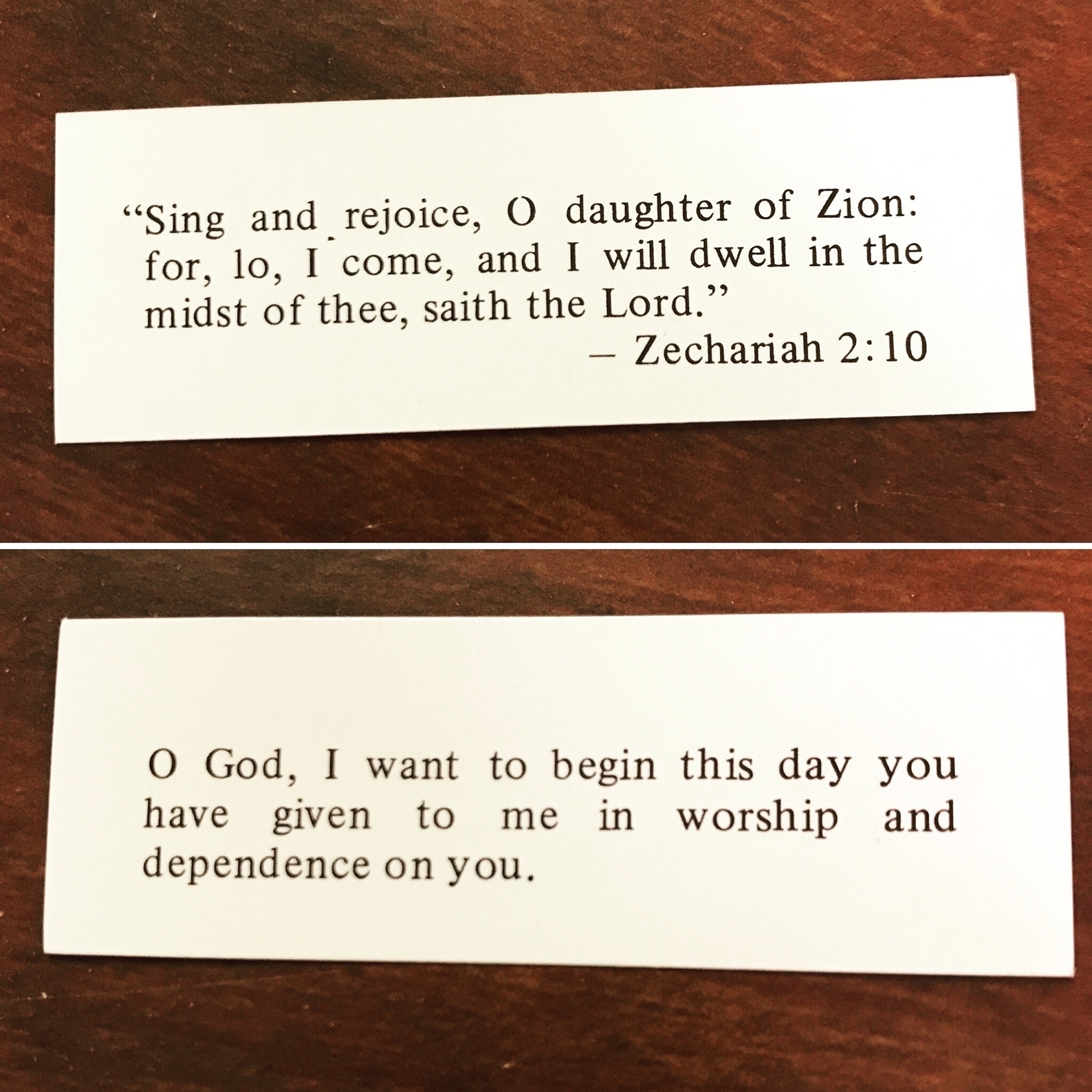
“You will be dead, so long as you refuse to die.” - George McDonald
Last night’s shameful “debate” confirms the inability of earthly nations and leaders to offer lasting hope, a compelling moral/ethical vision, or a way to understand the world in themselves.
Look to Jesus instead.
It’s not “being right” that makes us right with God, but the righteousness of Christ.
 NRH
NRH